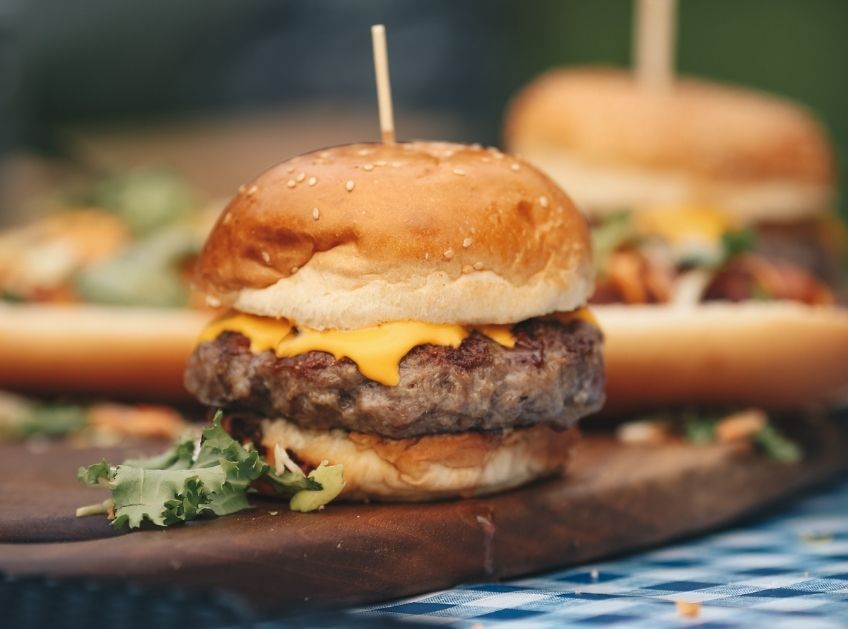FALL 2024
Burgers for Everyone
Fond memories of a generous teacher lead to a meditation on the Eucharist.
- Story by Philip Metres

“MR. CLARK WAS always around,” Chad said, when I asked him about the founder of the school where Chad was teaching in inner-city Cleveland. Chad and I had just met, tucking into some pulled pork sandwiches and tomato salads at a backyard party, connecting over a shared teacher.
“He loved to cook for everyone at St. Martin,” Chad said, adjusting his backward cap.“Some days, he’d make a burger for every single person at the school.” Mr. Clark would hold monthly clam bakes, a chance for the staff to enjoy a drink together. “At a school that relies on young teachers, it was one of the reasons that people stayed. Myself included.”
“I still remember his lectures,” I said. Nearly forty years ago, Mr. Clark was my high school ethics teacher. “Kohlberg’s theory of moral development. The difference between defining morality through our intention versus the outcome.”
“Man,” he said, tilting his head, biting into the pulled pork. It’s what every teacher wants to hear—that their lessons are remembered.
“And also,” I said, “something about the Eucharist. Not sure what it had to do with ethics, but he wrote on the board, ‘Do THIS in memory of me.’ Mr. Clark underlined THIS, twice, and turned back to us. ‘What did Jesus mean?’ he asked us. ‘Is it about the communion rite, about sacrifice, or about gathering together, to honor his memory? It blew my mind. Pared back all the religious stuff so that I could see that meal Jesus shared with his friends.”
“I didn’t get much of a religious education,” Chad confessed, tilting his head to down the beer.
I remember being annoyed when the Church changed the translation of the Mass in 2011. During the eucharistic prayer, the priest used to say, “when supper was ended, he took the cup. Again he gave you thanks and praise, gave the cup to his disciples, and said: ‘take this, all of you, and drink from it; this is the cup of my blood…do this in memory of me.’” But in the new translation, Jesus’s cup became a “chalice,” a weirdly literalistic translation of the Latin, calicem, which means cup. A cup is so homely, so everyday. A chalice is something special, a goblet used for wine, inexorably liturgical.
I took a swig of seltzer. LaCroix. It suddenly hit me.
“You know,” I said, “Mr. Clark’s cooking, those clam bakes. That’s what he was doing. His last lessons. He was translating the Eucharist.”
Chad’s face relaxed. I laughed. Two teachers, learning again from a master.
“When he died, I was sorry that I hadn’t reached out to see him. I’d been in Cleveland over twenty years and somehow didn’t find time to share a single meal with him,” I confessed to Chad.
“But you remembered,” he said. It’s true. I do.
At the funeral, Clark’s daughter Bridey asked everyone to turn to the person next to them and say, “I love you and there’s nothing you can do about it.” It was a phrase often repeated at school, particularly when people were about to head off at the end of the year. It reminded me of the father of the Prodigal Son, whose love poured forth, a stream endlessly replenished.
At the heart of the THIS is not the sacrifice alone, but the sharing, how Jesus gave over himself completely into love, a love that keeps inviting us in, keeps offering itself. What will we do about that?
PHILIP METRES has published twelve books, including Fugitive/ Refuge. Winner of three Arab American Book Awards, he is a professor of English at John Carroll University.